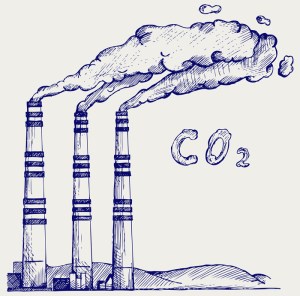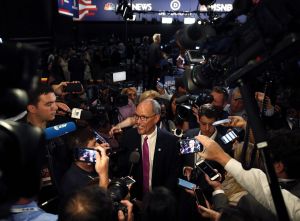In this day and age, climate change poses an undeniable threat; that is, unless you are the leader of the free-world. Global economic activity has accelerated the emission of CO2, the most atmospherically damaging of all the greenhouse gases resulting from human activity. This is precisely why economists belong at the forefront of the discussion on how to mitigate the threat of climate change, and arguably could be one of the most important voices towards enacting meaningful change. Policy-makers often willfully ignore anything economists say, as economic proposals during campaigns typically morph into grandstanding (as a means of garnering political support). An issue as dire as climate change requires more accountability.
The first, and perhaps overly-ambitious step, would be to elect public officials who don’t dismiss climate change as nonsense, or deflect mankind’s evident role in it. Okay, well that didn’t work. Maybe the focus should be on plastic straws instead?
The public crusade against straws, which account for a paltry 0.025% of yearly oceanic plastic waste, is unlikely to do much more than make pseudo-activists feel a sense of contribution, and provide good PR to large corporations. While any step in the right direction is undoubtedly useful for spreading awareness of our impact on the planet, the disdain for straws amounts to no more than a mere shuffling of feet.
If not straws, then what?
The answer may lie in the economic poster child of tackling climate change: the carbon tax. A carbon tax, in its simplest form, is a system whereby the government sets a price on a ton of CO2, and then charges a tax to entities that produce it. In an unregulated market, the cost of producing too much carbon (climate change) is borne by those who aren’t involved in the actual production of the pollution. In other words, we all pay for the cost of carbon emissions that ravage the environment, not the companies who are emitting it. Thus, a market inefficiency is created, wherein producers of CO2 have no incentive to reduce their environmental impact.
I mean, why would they if we are going to inadvertently pay for it?
Carbon pricing is basic economics, which is probably why it has garnered so much support from economists, and general disdain from the public. As seen in figure 1, support from economists for a carbon-tax, as opposed to other combinations of CO2-reducing policies, is overwhelming. William Nordhaus, an economist and Sterling professor at Yale University, has demonstrated through his research on climate economics that a carbon pricing strategy is more efficient and more effective than other systems. His work was enough to merit the 2018 Nobel prize in economics while serving to further solidify the role of economists in the global fight against climate change.
Figure 1: 40 of the top economists in the US were polled by the University of Chicago on the efficacy of a carbon tax in comparison to a collection of other CO2 reducing policies.
Carbon pricing is effective in theory, but what about in application?
In 2008, the province of British Columbia pioneered the first meaningful carbon tax in North America, initially pricing carbon at $10 per ton, then upping the price to $30 per ton in 2012, and $35 per ton in 2018. The results of this study conducted on the tax were promising. The province reduced carbon emissions by as much as 15% by 2015 with negligible overall impact on the economy. Other provinces and even entire countries need to take BC’s success with cautious optimism, and begin to look at implementing their own carbon pricing strategies.
Enacting meaningful action to halt the progression of climate change requires a global effort. Carbon taxes are a drop in the bucket, but a necessary one at that. Economic policies catering to the environment such as carbon pricing require a careful and pragmatic approach to educating the public. Those keen on reducing climate change need to echo the benefits of carbon pricing that economists have been, and still are, stressing. Strangely, environmental do-gooders might actually make their biggest impact by picking up an economics textbook and ignoring the hysteria with plastic straws.




